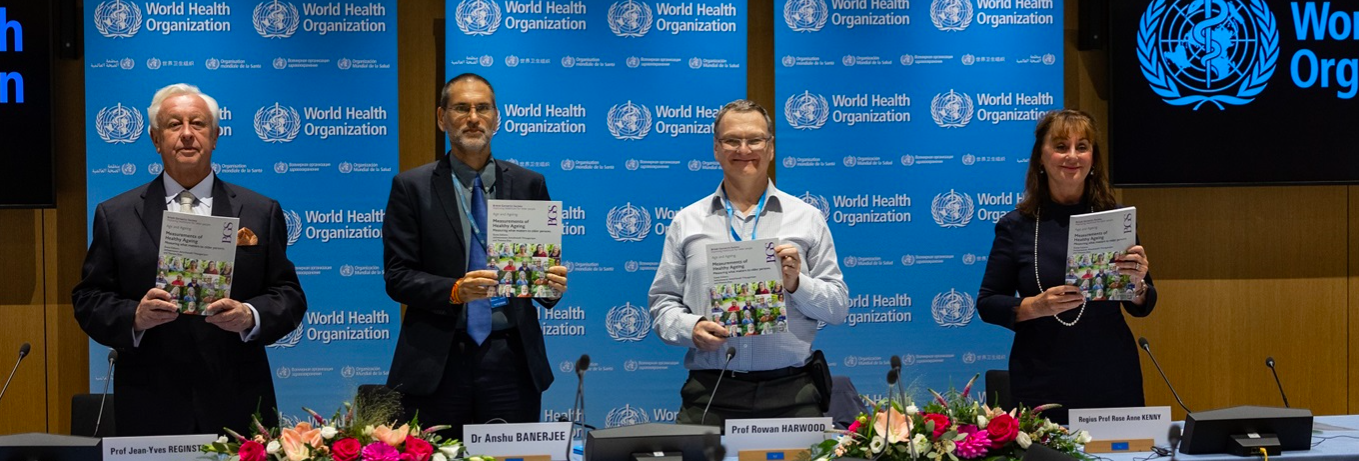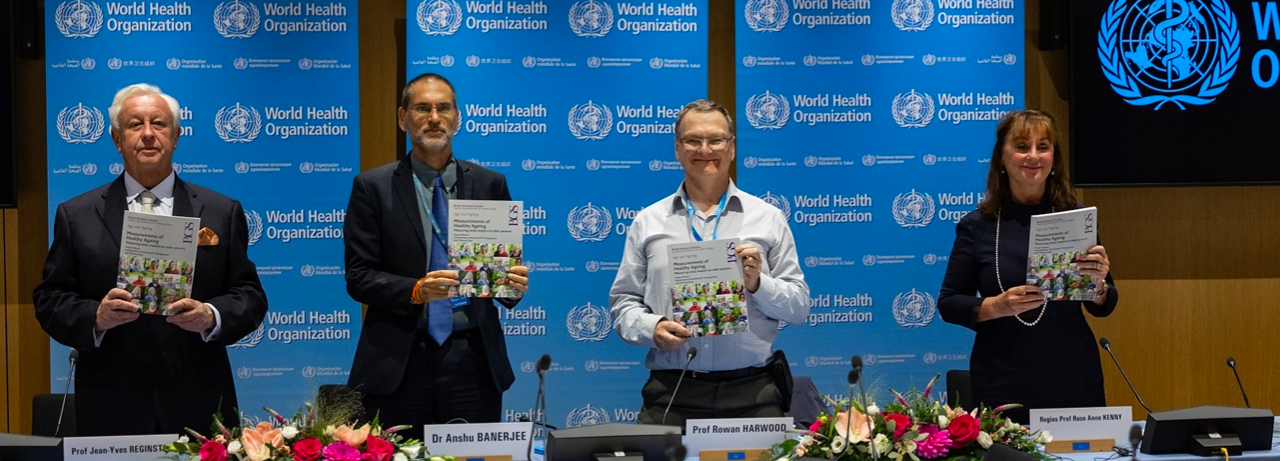
WHO, in collaboration with Age and Ageing, the journal of the British Geriatrics Society, has released a Special Issue on Measurements of Healthy Ageing. This Special Issue brings together the work of international professionals and experts from over 40 academic institutions to identify the best available tools to measure what truly matters to older people – their intrinsic capacity and functional ability.
The global demographic shift towards an ageing population – where the number of individuals aged over 60 is expected to double by 2050, reaching nearly 2.1 billion – presents unique challenges and opportunities. Although people are living longer, the average length of time someone can expect to live in good health has not improved in many countries. This means more people are spending their older years in poor health or with disabilities. The collection of articles in this issue addresses the growing need for greater knowledge and understanding about healthy ageing.
The biggest challenge in measuring healthy ageing is a lack of consistency across data, stemming from the wide range of ways to collect and analyse data. In response, the Special Issue aims to help ensure measurement concepts are clearly defined and offer a route to greater harmonization of measurement approaches.
The partnership between WHO and the Age and Ageing journal marks a significant step towards addressing knowledge gaps on measurement, in order to change global perception of ageing. By understanding and addressing the unique needs and abilities of older people, societies can progress towards a world where everyone ages with dignity and fulfillment.
“Trinity College in Ireland is excited to work with WHO to champion systematic collation of comparative data to address extant and future global ageing requirements,” noted Regius Rose Anne Kenny, Principal Investigator of the Irish Longitudinal Study on Ageing (TILDA).
“Clinical trials today must go beyond mere survival, focusing instead on ensuring that increased longevity is matched with improved quality of life,” said Professor Jean-Yves Reginster, Director of the WHO Collaborating Centre for Epidemiology of Musculoskeletal Conditions and Ageing. “It’s paramount to include ‘healthy ageing’ as a key outcome parameter, guiding us to view wellness, functional ability, and overall well-being as measures of success. As we pivot towards this integrated approach, we take significant strides towards a world where ageing is synonymous with enduring dignity and well-being.”
“The narrative of ageing has evolved,” said Professor Rowan Harwood, Editor of Age and Ageing, United Kingdom & Co-chair of the WHO Technical Advisory Group for Measurement of Healthy Ageing (TAG4MHA). “It’s no longer just about life expectancy but about the quality of those years. Health systems must be adept at addressing not just isolated acute health conditions but the often complex, intertwined issues accompanying ageing.”












